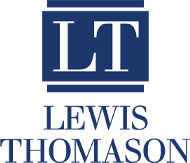The False Claims Act (“FCA”) remains an important mechanism for the Government to fight actions that defraud us– the citizen taxpayers. (LINK to Cornell Law Article on the FCA). In the FCA, there exists a unique and ever-important provision for whistleblowers, known as the Qui Tam Provision. (LINK to Whistleblower Blog Entry). Qui tam is an abbreviation for the Latin term “qui tam pro domino rege quam pro se ipso in hac parte sequitur,” meaning: “Who sues on behalf of the King as well as for himself.” (LINK to Cornell Law Article on Qui Tam Actions). In the United States, we do not exist in a feudal system serving a king, so it can be said that the provision advocates for a whistleblower to sue on behalf of the Government as well as for himself/herself.
A qui tam lawsuit allows the government the unusual opportunity to take control of the whistleblower’s case, known as “intervening”. (LINK to U.S. Supreme Court Blog). Because of this unique provision, federal courts have ruled that whistleblowers cannot bring a qui tam lawsuit without the representation of an attorney. (LINK to United States ex. rel. Lu v. Ou, 368 F.3d 773 (7th Cir. 2004)). An attorney helps persuade the government to get involved with the investigation and can increase the likelihood that the whistleblower receives financial award for exposing the fraud. Moreover, the attorney helps protect the whistleblower’s privacy, their interests relating to the suit, and their right against retaliation.
If you know of corruption or even criminal conduct occurring at work, do the right thing. Report it. And if you need help or advice during that process, contact my office at any point.





